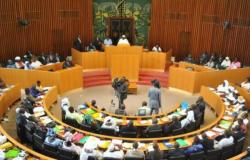THE ESSENTIAL
- In infants, heart rate fluctuations align with the timing of vocalizations and are associated with their duration and the likelihood of producing recognizable speech.
- Specifically, vocalizations produced at the time of peak heart rate are longer than expected by chance and those generated just before a trough are more likely to be recognized as a word.
- “Successful speech development depends in part on infants experiencing predictable ranges of autonomous activity,” according to the American researchers.
“For babies, producing recognizable words is more than a cognitive process. It is a motor skill that requires infants to learn to coordinate multiple muscles with diverse functions throughout their body This coordination is directly linked to continuous fluctuations in heart rate. explained researchers from the University of Houston (United States). In a recent study, they wanted to see if these heart rate fluctuations coincided with vocal production and word production in toddlers.
More vocalizations when heart rate speeds up or slows down
Thus, the authors recruited 34 children aged 18 to 27 months. They recorded and evaluated a total of 2,708 vocalizations made by the babies while they played with a caregiver. The team also took into account the heart rate dynamics of all sounds their mouths made, whether it was a laugh, a chirp or a coo. According to the data, because during this age range infants generally do not yet pronounce whole words, only a small subset of vocalizations could be reliably identified as words by listeners (10.3 %).
The results, published in the journal Proceedings of the National Academy of Sciences (PNAS)showed that toddlers were more likely to produce a vocalization when heart rate fluctuations reached a peak or trough. Vocalizations produced at peak time were longer than expected by chance. From a functional perspective, vocalizations produced just before the trough, as the heart rate decelerates, were more likely to be recognized as a word by listeners.
Word: “predictable ranges of autonomous activity” are necessary for successful development
“Every sound an infant makes helps their brain and body learn to coordinate,” said Jeremy I. Borjon, who led the work. As babies grow, their autonomic nervous system, the part of the body that controls functions like heart rate and breathing, develops. The first years of life are marked by significant changes in the functioning of the heart and lungs. “It ultimately results in speech,” he added.
“The association between recognizable vocalizations and heart rate deceleration may mean that successful speech development depends in part on infants experiencing predictable ranges of autonomic activity throughout their development,” the authors wrote. In their conclusions, they indicate that the results of this research have implications for understanding normative language development and potential early indicators of speech and communication disorders.
Health






